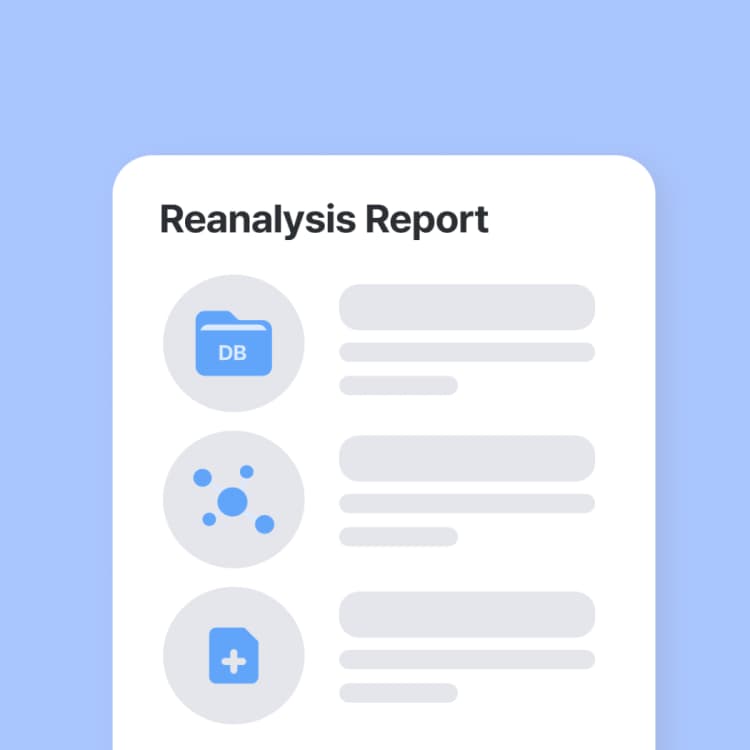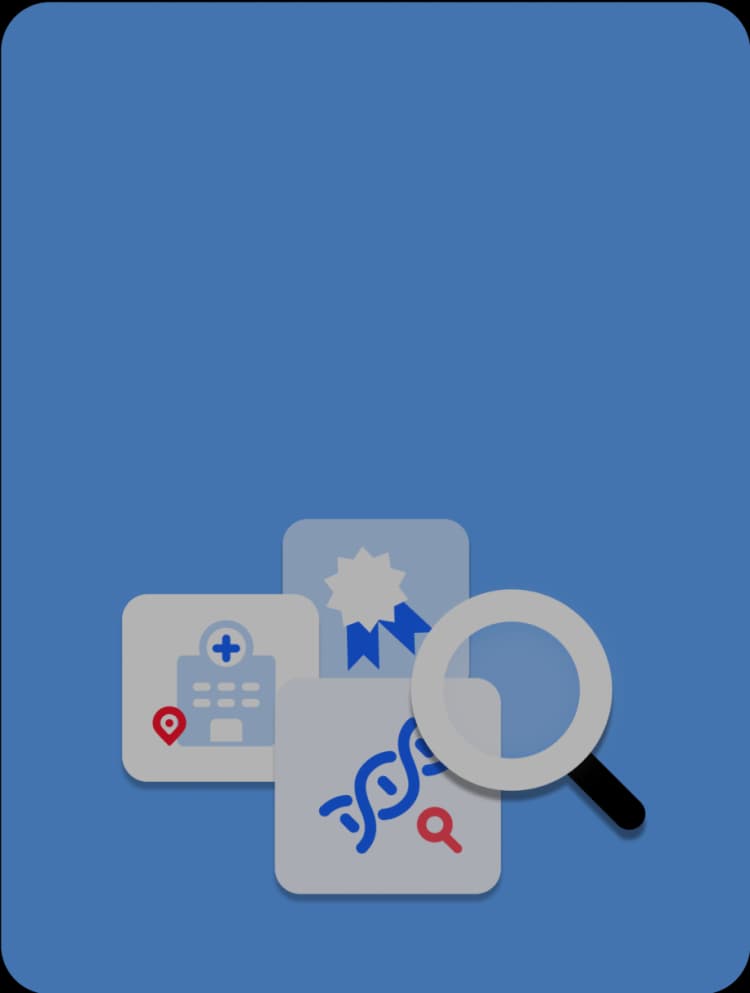Why is Reanalysis of Genetic Data Important?
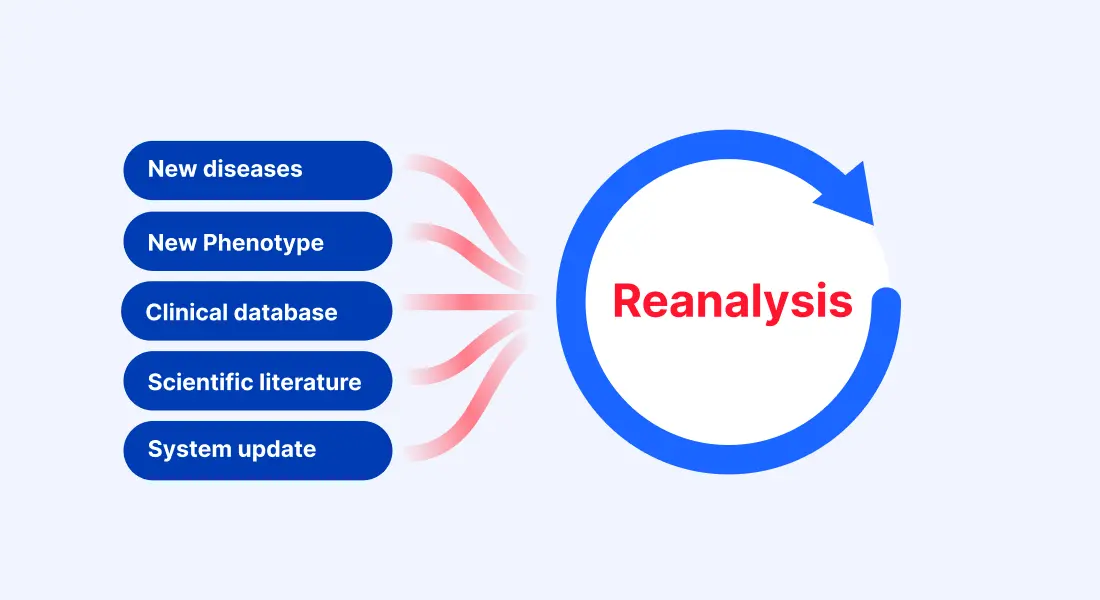
In the ever-evolving landscape of genetic testing, staying ahead of the curve and ensuring the utmost accuracy in diagnoses is paramount. One powerful tool that is increasingly gaining recognition in this regard is reanalysis sequencing data.
But what exactly is reanalysis genetic data, and why is it so crucial? In this article, we explore the significance of reanalysis in the world of genetics and its implications for healthcare professionals and patients alike.
The Genetic Testing Revolution
Genetic testing has come a long way in recent years. It has not only shed light on our ancestry but has also become an indispensable tool in diagnosing and understanding various genetic conditions. However, the genetic code is complex and dynamic, making it a challenge to pinpoint genetic variations accurately.
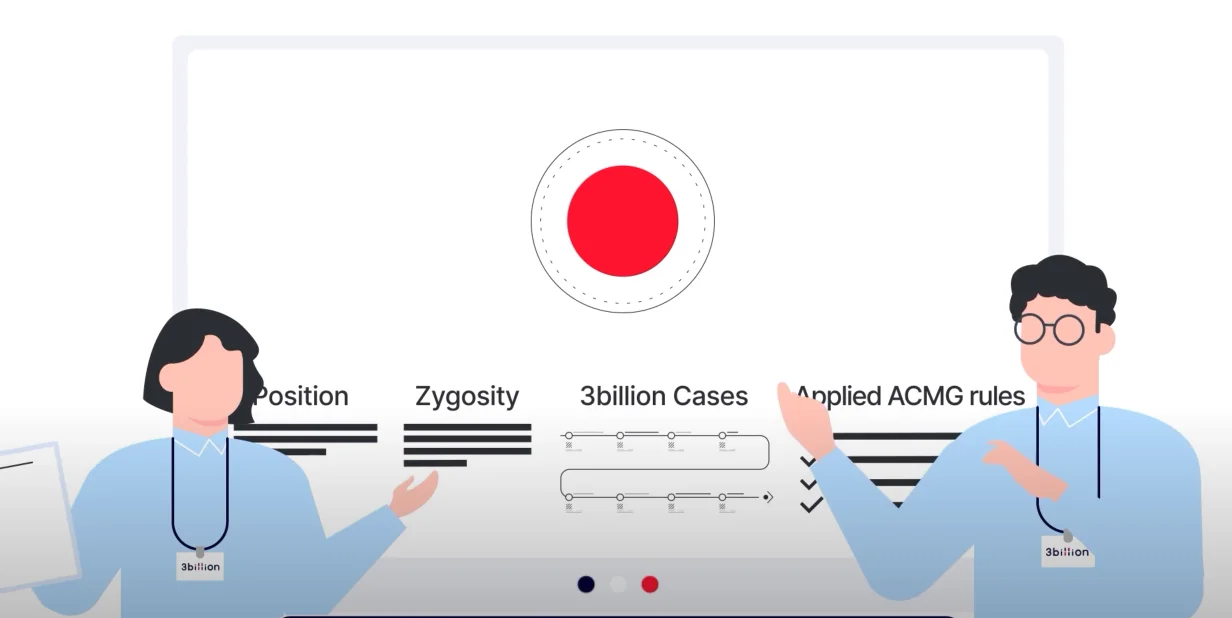
What is Reanalysis?
Approximately two third of rare disease patients remain undiagnosed after exome sequencing.1 And significant fraction of those suspected of having a monogenic disorder do not receive a molecular diagnosis after genome sequencing.2
Reanalysis, in the context of genetic testing, refers to the practice of reevaluating previously obtained genetic sequencing data.
It involves revisiting and reinterpreting the genetic information in light of new scientific discoveries, updated databases, and refined analysis techniques.
3billion performs reanalysis if healthcare provider and patient agree, by analyzing the patient’s genetic information based on the most up-to-date research.
3billion has completely AUTOMATED its reanalysis pipeline, and runs reanalysis for all undiagnosed cases EVERY DAY.

Looking for a Genetic Test That Includes Automated Reanalysis?
WES with built-in reanalysis to keep results always up to date.
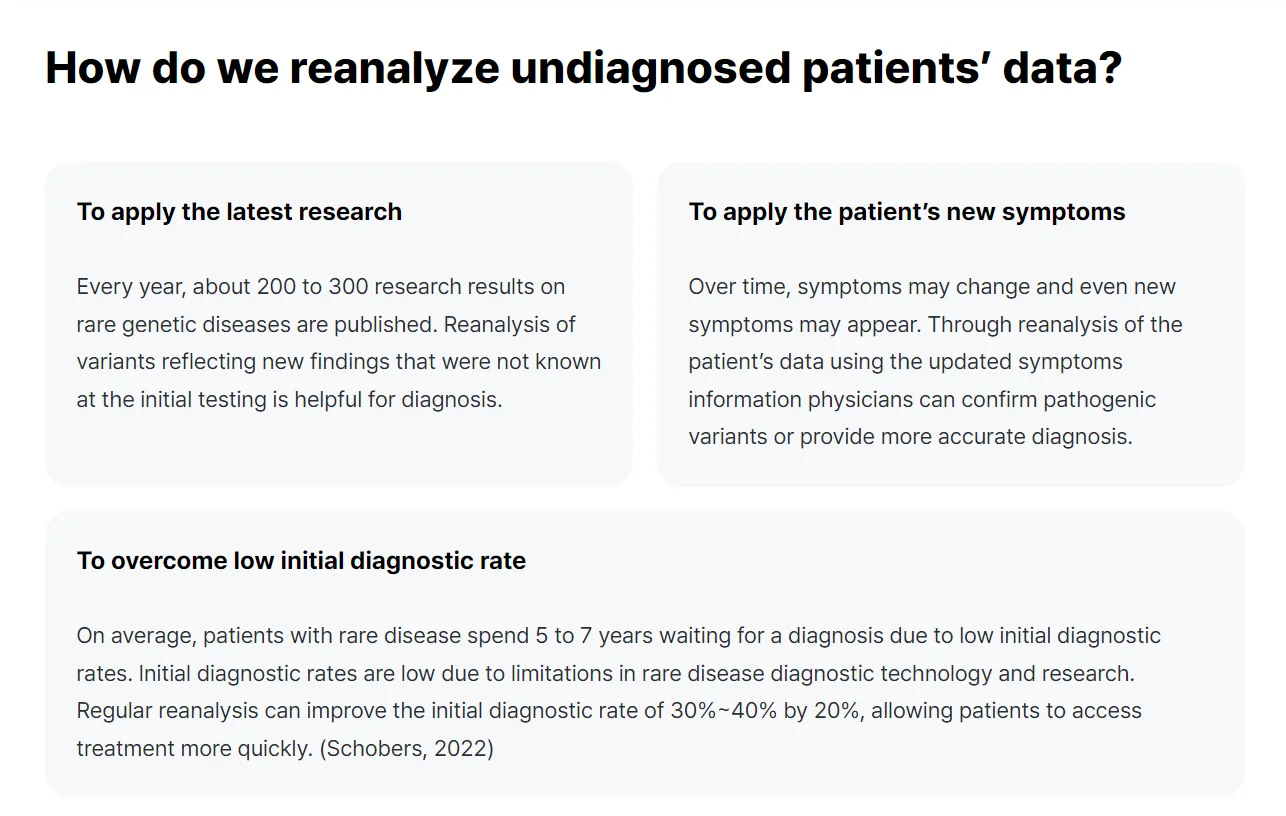
Why Reanalysis genetic data Matters
- Uncovering Missed Variants: Genetic testing technologies and databases are constantly improving. Reanalysis allows healthcare professionals to identify genetic variations that may have been missed during the initial analysis due to limitations in technology or knowledge.
- New Disease Associations: Scientific research continuously reveals new links between genetic variations and diseases. Reanalysis ensures that patients benefit from the latest findings, potentially leading to more accurate diagnoses and treatment plans.
- Improved Patient Outcomes: By leveraging reanalysis, healthcare providers can offer patients more precise diagnoses, personalized treatment options, and better management of their genetic conditions, ultimately leading to improved patient outcomes.
- Quality Assurance: Reanalysis serves as a quality control measure in genetic testing, helping to eliminate errors and false positives that can have serious implications for patients.
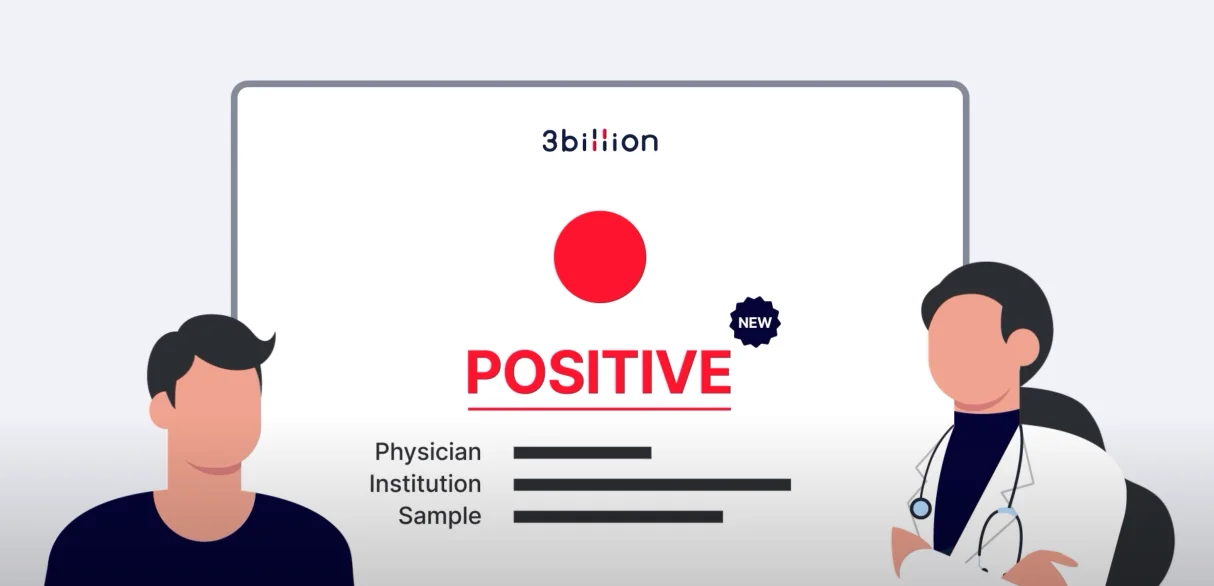
Reanalysis in Practice
Healthcare institutions and genetic testing laboratories are increasingly adopting reanalysis as a standard practice like 3billion. It involves periodic reviews of existing genetic data, ensuring that patients benefit from the latest advancements in genetics. This commitment to excellence underscores the dedication to providing the highest quality of care and precision in genetic testing.
– Comparing reanalysis policies of 5 rare disease diagnostic companies
3billion started our reanalysis system with the thoughts of “how can we take care of undiagnosed patients until the end?” and “how can we help find answers for one more patient every day?”
Through daily reanalysis, 3billion provides the most up-to-date results to undiagnosed patients and medical professionals. About 1.8% of all testing results were confirmed positive through the reanalysis pipeline.
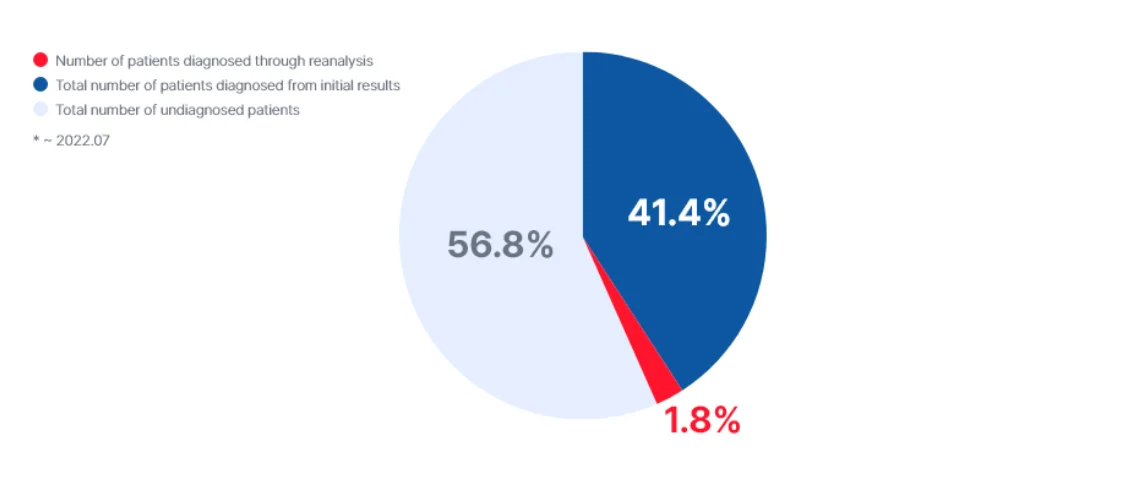
Get exclusive rare disease updates
from 3billion.

Sree Ramya Gunukula
Marketing Leader with experience in the pharma and healthcare sectors, specializing in digital health, genetic testing, and rare disease diagnostics.

